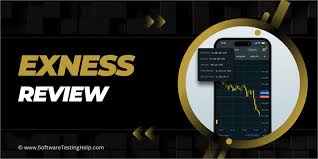
Can I Trade on an Exchange? A Comprehensive Guide
If you’ve ever wondered can i trade on an unverified account exness https://extrade-broker.com/ whether you can trade on an exchange, you’re not alone. Trading on an exchange can be a rewarding experience, but it’s essential to understand the intricacies involved. In this article, we will explore the world of trading on exchanges, covering various aspects such as types of exchanges, the trading process, strategies, and tips for success.
Understanding the Basics of Trading on an Exchange
Before diving into specific exchanges, let’s clarify what trading on an exchange entails. An exchange is a platform that facilitates the buying and selling of financial instruments, including stocks, commodities, currencies, and cryptocurrencies. The primary function of an exchange is to provide a marketplace where buyers and sellers can execute trades efficiently.
Types of Exchanges
There are several types of exchanges in the financial markets, each serving different purposes:
- Stock Exchanges: Platforms where shares of publicly listed companies are traded. Examples include the New York Stock Exchange (NYSE) and the Nasdaq.
- Commodity Exchanges: Specialized markets for trading raw materials like gold, oil, and agricultural products. The Chicago Mercantile Exchange (CME) is a well-known commodity exchange.
- Forex Exchanges: Platforms for trading currencies. The forex market is decentralized, meaning it doesn’t have a physical location but operates globally.
- Cryptocurrency Exchanges: Online platforms where users can trade cryptocurrencies. Popular exchanges include Coinbase, Binance, and Kraken.
Can I Trade on an Exchange?
The simple answer is yes; you can trade on an exchange, but there are a few steps you need to follow:
- Choose the Right Exchange: Select an exchange that fits your trading needs (e.g., stock, Forex, cryptocurrency).
- Create an Account: Sign up for an account on your chosen platform. This usually includes providing personal information and verifying your identity.
- Fund Your Account: Deposit funds into your account, which can be done through various payment methods (bank transfer, credit card, etc.).
- Develop a Trading Strategy: Define your trading goals and create a strategy that outlines how you will enter and exit trades.
- Start Trading: Execute trades based on your strategy, and continuously monitor your portfolio.

Essential Trading Strategies
To be successful in trading, you must develop sound strategies. Here are a few popular trading strategies:
- Day Trading: Involves buying and selling assets within the same day to capitalize on small price movements.
- Swing Trading: Traders hold positions for several days or weeks to profit from expected price shifts.
- Scalping: A technique focusing on making numerous small trades throughout the day to accumulate small profits.
- Trend Following: This strategy involves following market trends and making trades in the direction of the trend.
Risks Involved in Trading
While trading on exchanges can be lucrative, it also involves a considerable amount of risk. Some common risks include:
- Market Risk: The potential for losses due to unfavorable market movements.
- Liquidity Risk: The risk that an asset cannot be sold quickly without a significant price concession.
- Regulatory Risk: Changes in regulations can impact trading conditions and the availability of certain assets.
- Psychological Risk: Emotional factors can lead to irrational trading decisions, often resulting in losses.
Tips for Successful Trading
Here are some essential tips to help you succeed in your trading endeavors:
- Educate Yourself: Knowledge is power. Take time to learn about market trends, trading strategies, and other relevant topics.
- Start Small: If you’re new to trading, consider starting with a small amount of capital to minimize risk as you learn.
- Use Stop-Loss Orders: These orders help protect your investments by automatically selling an asset when it reaches a predetermined price.
- Keep Emotions in Check: Stick to your trading plan, and avoid making impulsive decisions based on fear or greed.
- Stay Updated: Keep an eye on market news and trends, as these can impact your trades significantly.
Conclusion
Trading on an exchange is indeed possible and can offer various opportunities for profit. However, it requires a thorough understanding of the markets, a solid strategy, and the ability to manage risks effectively. By following the guidelines and tips outlined in this article, you can embark on your trading journey with greater confidence. Whether you choose to trade stocks, commodities, currencies, or cryptocurrencies, always remember that successful trading requires continuous learning and adaptation to market conditions.
